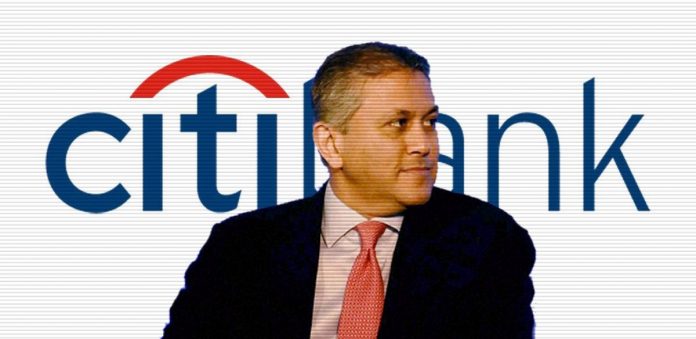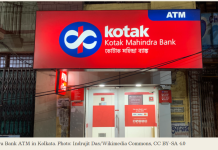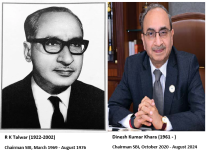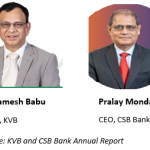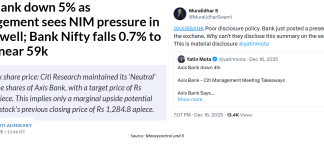By Hemindra Hazari
On January 11, 2019, the Reserve Bank of India (RBI) issued a press release informing the public that “by an order dated January 4, 2019 [the RBI] imposed a monetary penalty of Rs 30 million on Citibank N.A. India (the bank) for deficiencies in compliance with the RBI instructions on ‘Fit and Proper’ criteria for directors of banks.”
While the financial press dutifully reported the banking regulator’s penalty on Citibank, there has been, strangely, little information on why the RBI had penalised such a prominent and large global bank.
Had the business media bothered to probe the issue, they would have come across a few puzzles.
The first question: who exactly is the RBI punishing?
As per Citibank’s financials, which are available for public viewing on the bank’s website, the financial accounts of its Indian branches for FY2018 are signed by only three individuals: Pramit Jhaveri, the chief executive officer (CEO), Niraj Parekh chief financial officer (CFO), and Swapnil Kale, partner, MSKA and Associates.
Citibank India has so far publicly not expressed interest in conducting its operations in this country through a subsidiary. The bank’s financial accounts refer to the Indian entity as “Citibank N.A. – India Branches”. In other countries in which Citibank operates – like Indonesia or Malaysia – it does have a subsidiary. In those countries, each subsidiary has a separate board of directors (seeCiti Indonesia).
In India, going by the bank’s public information, it appears as if Citibank does not have a corporate structure along the lines of Malaysia or Indonesia. There is no public disclosure of Citibank’s India operations having a separate board of directors like other private sector banks in India which include executive and non-executive directors.
The issue arises is who is the RBI referring to when it says Citibank N.A. India for “deficiencies in compliance with fit and proper criteria?”.
There appears to be no Indian board of directors, and there are only two Citibank officials who sign the India accounts, the CEO and the CFO.
One possibility is that the the RBI is penalising a board director in the parent company in the United States. This seems unlikely though as the notice refers to punishment for “Citibank N.A. – India”.
Another option is that a senior member of the Citibank N.A. – India management team then could have been found guilty of not complying with RBI rules. This would include the possibility that the central bank’s penalty pertains to non-compliance by Pramit Jhaveri, the Citibank India CEO, who has been with the bank since 1987, and has been its CEO since March 29, 2010.
Nearly a fortnight after RBI’s press release, Pramit Jhaveri was appointed vice-chairman of banking and capital markets and advisory, Asia Pacific from April 1. The Business Standard report states , “Jhaveri will not replace anyone as this post is being created for the Asia Pacific region. A similar post was created for North America earlier.”
Normally, when such senior promotions are announced it also includes which prominent executives in the organisation will be reporting to the individual, however, in this case there is no such information in the media reports which covered the development.
The Wire sent a questionnaire to Jhaveri and Citibank India, asking for details on the nature of non-compliance, but did not receive a response despite repeated reminders.
RBI’s ‘Fit and Proper’ Criteria for Directors on the Boards of Banks clearly highlight that bank directors have to disclose their own and their relatives’ business interests as defined in The Banking Regulation Act, 1949 (BRA) and the Companies Act, 1956. They also have to disclose their fund and non-fund based relationships with the bank and whether the directors and relatives have defaulted on any credit facilities in the banking industry.
Directors also have to disclose any disciplinary action taken against them whether as a member of a professional association or criminal prosecution by the state or investigation by government agencies and whether directors have been found guilty of violation of any laws. Any violation of RBI’s fit and proper criteria naturally make an individual ineligible as a bank director.
Pertinently, violation pertaining to non-compliance regarding non-disclosure of business interests of the director and the individual’s relatives is severe. Section 10B(4) of the Banking Regulation Act, 1949 (BRA) states that the CEO of a bank can be disqualified if the individual has substantial business interests in another firm and is a partner/director (with some exceptions) in an activity engaged in any trade, business or industry.
Why did Citi sleep?
What is even more unusual is how Citibank India’s own compliance department ignored such a critical issue. Criminal investigations and convictions will normally entail the immediate removal of bank staff and credit facilities of a CEO with the bank will also be carefully scrutinised. In case of investments and business interests, in most global banks, all managerial personnel have to disclose not only their investments and business interests, but also those of the individuals whose investments they control and/or manage, in their monthly personnel investment policy disclosures.
This is all the more important for individuals who manage the bank’s corporate and treasury relationships. That a prominent foreign bank’s director can be found by the regulator to be deficient in compliance of ‘Fit and Proper’ Criteria reflects poorly on Citibank’s compliance culture, which should have flagged the issue at an early stage, instead of the bank being hauled up by the regulator.
By fining Citibank India a mere Rs 30 million, the RBI has again demonstrated its policy of a ‘light tap on the wrists’ when dealing with powerful banks which have been found guilty of violations under Indian law. Pertinently, the wording of RBI’s press release on the Citibank penalty is vague, without any indication what the specific violation is. In contrast, when the regulator stringently fined Bandhan Bank on September 28, 2018, the bank disclosed the specific reasons for the same. The RBI penalties on Karur Vysya Bank and Bank of Maharashtra also clearly specified to the public the reason for the regulatory censure.
Citibank, India’s operations in India are significant, with standalone net profits of Rs 34 billion in FY’2018 even though it has only around 44 branches. As per Basel III disclosures, as on September 30, 2018, the consolidated entity has common equity tier 1 of Rs 231 bn and risk weighted assets of Rs 1,382 bn. As per the bank’s website, in the year ended March 31, 2018, in India, the bank was ranked No. 1 in mergers and acquisitions and in equity capital markets. In India, the bank has 2.7 million credit cards and a “9% share in card spends (August 2018), and the highest spend per card amongst major retail issuers.”
The large global banks’ influence in host countries where they operate is far more significant than their normally limited physical presence in these economies.
Indeed, former RBI governor Y.V. Reddy in his memoirs, Advice and Dissent – My Life in Public Service, (2017) gives a damning first-hand indictment of the disproportionate influence on India’s economic policy by foreign banks, and of Citibank in particular.
He narrates an incident when, as RBI governor, he was nominated to lead the Indian delegation in a meeting with the International Monetary Fund (IMF) and the World Bank in Washington D.C. in April 2004:
“Above all, I was shaken by my experience during the Fund-Bank (World Bank and International Monetary Fund) Spring meetings in Washington D.C. It was April 2004…In Washington, D.C., a senior official of Citibank called on me. He offered to provide assistance to the RBI in preparing guidelines for the entry of foreign banks. Elections have been ordered and a new government is yet to take a position on this matter, I informed him. He asserted that Citibank was confident of ensuring the implementation of the policy, whichever government came to power. I was taken aback. ‘Whichever government comes to power’: to me, such an assertion indicated the influence that the global financial conglomerates could exercise over the political and decision-making processes in our country. I resolved that we simply could not afford it.” p. 361
Addressing a gathering of central bank governors in Basel in June 2012, Y.V. Reddy cautioned the audience,
“In the prevailing environment of global financial markets, some large global financial conglomerates are larger and, perhaps, more powerful than some of the central banks.” p. 301
RBI’s mild and ambiguous rebuke of Citibank India should therefore be noted in the context of Reddy’s own first-hand experience as the governor of India’s central bank.

